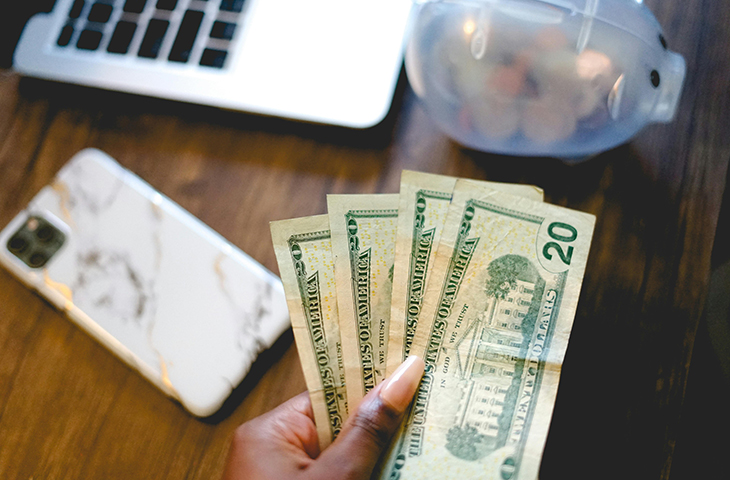Paypal Is Skyrocketing, But Here's 1 Warning Before You Buy The Stock

PayPal (NASDAQ: PYPL) is finally starting to attract some bullish sentiment from the investment community. At its 52-week low in April earlier this year, shares were trading a gut-wrenching 80% below their peak from July 2021. But in the past six months, they have soared 50% (as of Dec. 17).
Investors might be inclined to buy this fintech stock in hopes of riding the momentum as we set our sights on 2025 and beyond. But here's one warning you can't miss.
Start Your Mornings Smarter! Wake up with Breakfast news in your inbox every market day. Sign Up For Free »
Competition in the payments industry
One obvious warning PayPal shareholders must heed is just how competitive the payments landscape has become. Visa and Mastercard get a lot of attention because of their duopolistic position in the credit card processing niche. However, numerous fintech platforms exist and they're all trying to capture a larger chunk of the growing digital-payments space.
PayPal's flagship mobile app and branded-checkout solution competes head-to-head with the likes of Apple Pay. According to Insider Intelligence, Apple Pay has 60 million users in the U.S.
And because Apple owns the iPhone, of which 1.4 billion are active across the globe, Apple Pay will always feature prominently as a method of transacting for this affluent demographic.
Block's Cash App is a formidable rival to Venmo, as they both offer similar services for individual consumers. Cash App has 57 million monthly active users who deposited $70 billion onto the platform in the third quarter.
Things aren't easy on the merchant-facing side either. Braintree, PayPal's fastest growing segment in terms of total payment volume (TPV), goes up against Stripe, Adyen, and Shopify, for example. These are all thriving, well-funded, highly innovative, and customer-friendly enterprises, meaning PayPal needs to be on top of its game with product development, branding, and pricing.
Perhaps worries about competition eating away at PayPal's industry position explains why the stock hasn't done well in recent years. Investors must keep this ongoing risk in mind when considering allocating capital to PayPal shares, as it adds uncertainty to the company's long-term prospects.
PayPal is a quality business
Despite the ongoing competitive threats PayPal faces seemingly on all fronts, investors won't find a shortage of reasons to appreciate the business. Four critical factors could still lead you to want to be a shareholder.
PayPal continues showing growth across key metrics. TPV and revenue increased 9% and 6% year over year to $422.6 billion and $7.8 billion, respectively, in Q3 (ended Sept. 30). This was after both figures posted solid gains in 2022 and 2023. Clearly, the business is benefiting from greater usage of its platform, particularly as online shopping and digital payments rise in popularity.
As a two-sided ecosystem, PayPal has developed an economic moat that stems from network effects. Merchants looking to generate revenue via e-commerce sales almost have no choice but to accept PayPal as a method of payment unless they want to lose out on sales opportunities.
And given that PayPal is such a widely accepted digital wallet, especially in North America and Europe, consumers who want plenty of places to shop will find tremendous value in signing up for an account. As the number of merchants and consumers grows, so too does the value of the entire network for all stakeholders. This favorable setup provides some protection from competitive forces discussed above.
PayPal is incredibly profitable. Its operating margin has averaged a strong 16.3% in the past five years, demonstrating a scaled business model that can leverage the expense base.
And thanks to sizable free cash flow, management has spent $5.4 billion on share repurchases just in the last 12 months, likely spurred by the cheap valuation. The current forward price-to-earnings (P/E) ratio of 19.9 isn't as attractive as it was a few months ago, but I still think it's reasonable given the positive attributes just mentioned.
You still might be thinking of buying PayPal stock. After learning about an important downside factor, namely competition, investors can size a position accordingly. Maybe investing 1% or 2% of your portfolio at first is a prudent move, with a higher allocation warranted according to PayPal's financial performance.
Don’t miss this second chance at a potentially lucrative opportunity
Ever feel like you missed the boat in buying the most successful stocks? Then you’ll want to hear this.
On rare occasions, our expert team of analysts issues a “Double Down” stock recommendation for companies that they think are about to pop. If you’re worried you’ve already missed your chance to invest, now is the best time to buy before it’s too late. And the numbers speak for themselves:
- Nvidia: if you invested $1,000 when we doubled down in 2009, you’d have $349,279!*
- Apple: if you invested $1,000 when we doubled down in 2008, you’d have $48,196!*
- Netflix: if you invested $1,000 when we doubled down in 2004, you’d have $490,243!*
Right now, we’re issuing “Double Down” alerts for three incredible companies, and there may not be another chance like this anytime soon.
*Stock Advisor returns as of December 23, 2024
Neil Patel and his clients have no position in any of the stocks mentioned. The Motley Fool has positions in and recommends Adyen, Apple, Block, Mastercard, PayPal, Shopify, and Visa. The Motley Fool recommends the following options: long January 2025 $370 calls on Mastercard, long January 2027 $42.50 calls on PayPal, short December 2024 $70 calls on PayPal, and short January 2025 $380 calls on Mastercard. The Motley Fool has a disclosure policy.


